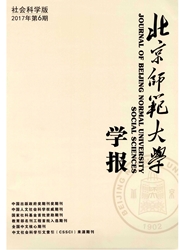

 中文摘要:
中文摘要:
个体的道德系统不仅包括评价道德水平的道德形式,而且也包括界定道德范畴的道德内容。以理性主义为基础的传统道德心理研究重视道德形式,忽视情绪因素,未能充分揭示道德判断规律;忽视道德情感与行为,未能系统描述个体道德全貌;忽略文化多样性,反映出有限的道德内容观。随着多学科的发展与交流,新综合取向的道德基础理论应运而生。该理论认为道德具有先天性、可塑性、直觉性和多元性四个基本特征,包含关爱/伤害,公平/欺骗,忠诚/背叛,权威/颠覆,洁净/堕落五元道德内容,后新增自由/压迫共六大道德内容。基于该理论的应用研究,涉及个体心理特征与多元道德内容的关系、不同群体道德内容的差异性及其影响因素、道德内容差异性对个体态度的预测三个方面。未来研究可以继续深入探讨不同道德内容对于个体社会行为的交互影响,以及多元道德内容基础上的个体道德发展。
 英文摘要:
英文摘要:
Individual's moral system consists of moral contents and moral forms,defining what one's morality is and how it works.Based on rationalism,traditional moral research has long focused on moral reasoning and judgment rather than instinct,emotion and behavior.In addition,because it neglects the cultural diversity,the traditional approach cannot describe systematically the whole picture of individual's moral landscape.With the evolutionary development of neurological and social psychology,there has emerged a new and synthesis approach of moral research,which is the moral foundation theory.The theory proposed that morality is innate,intuitional and pluralistic,and could be learned from culture.Basic moral foundations include 5original dimension:Care/harm,Fairness/cheating,Loyalty/betrayal,Authority/subversion,and Sanctity/degradation,and one newly found dimension of Liberty/oppression.Current application research of the theory involved the relationship between moral foundations and individual psychological characteristics,the differences of moral foundations cross different groups,and the reasons inducing these differences.Future research can explore how the interactions of different moral foundations influence social behavior of individual and individual's moral development on the foundations of pluralistic moral dimensions.
 同期刊论文项目
同期刊论文项目
 同项目期刊论文
同项目期刊论文
 期刊信息
期刊信息
